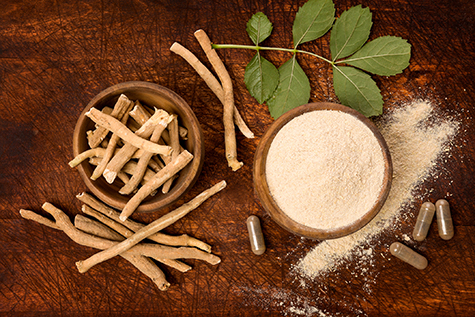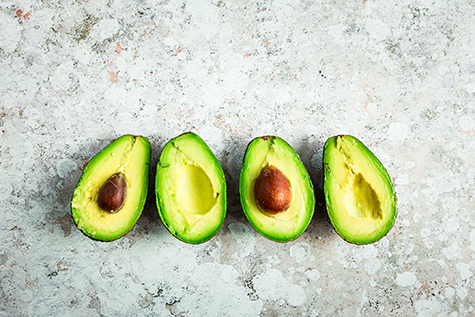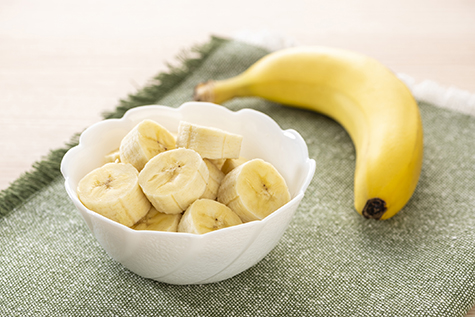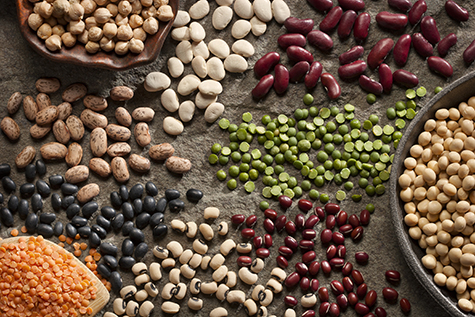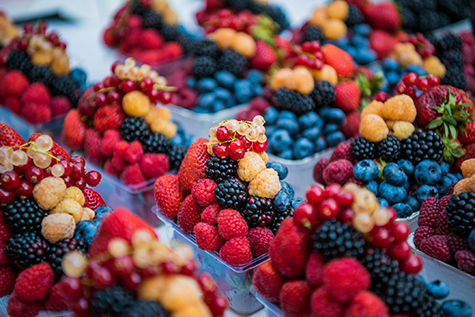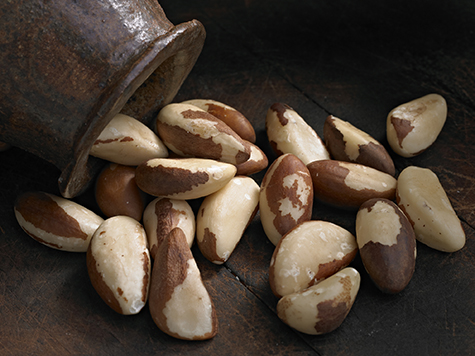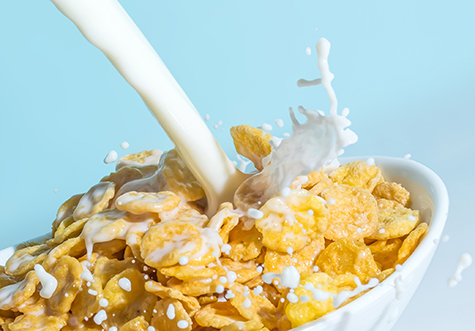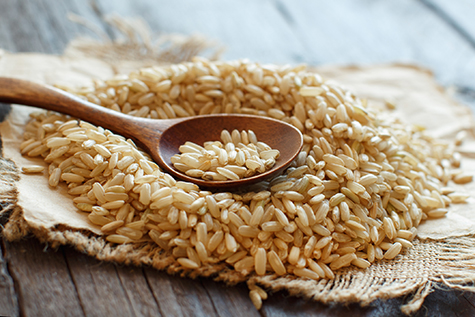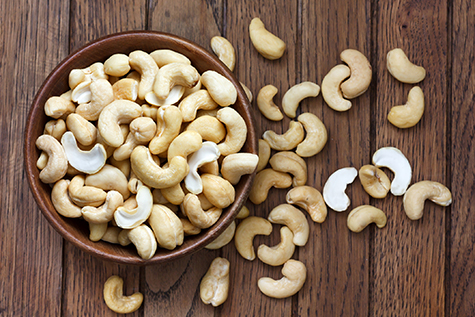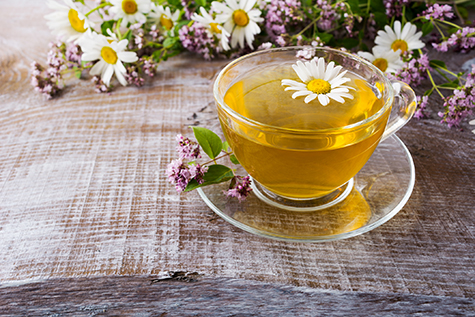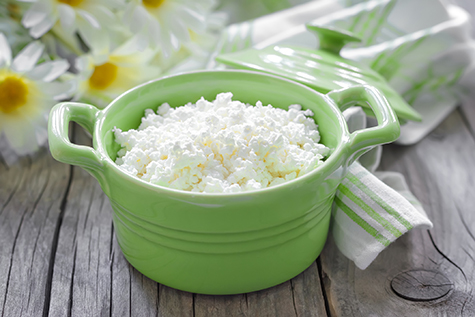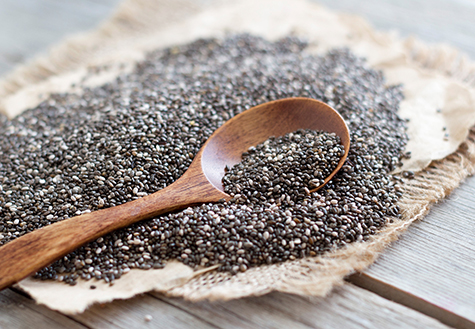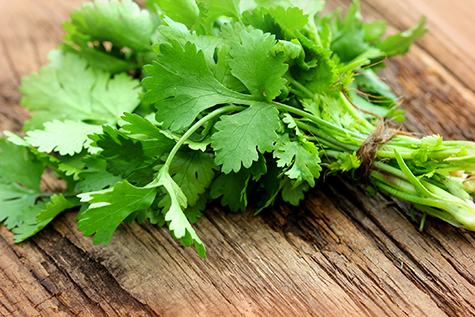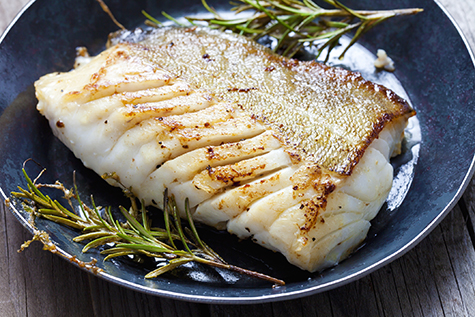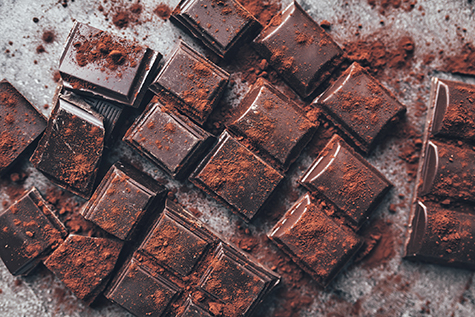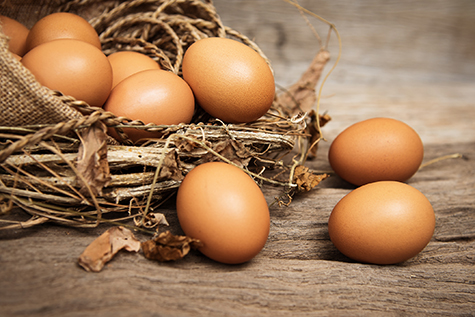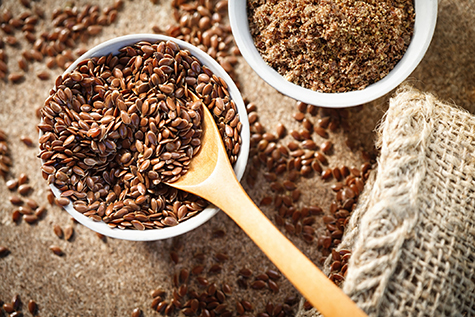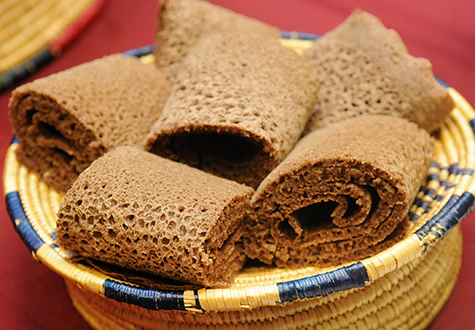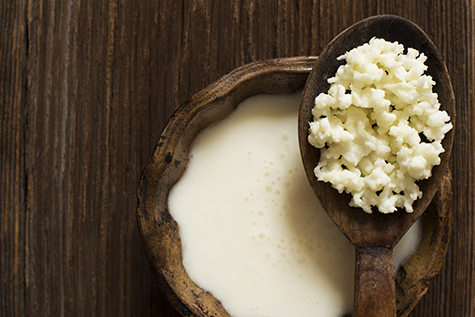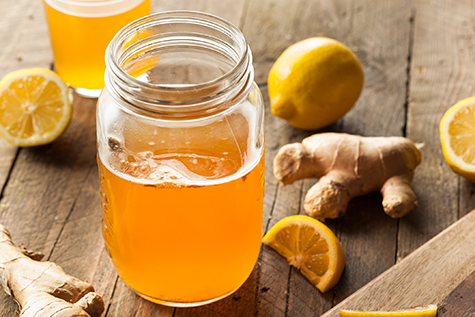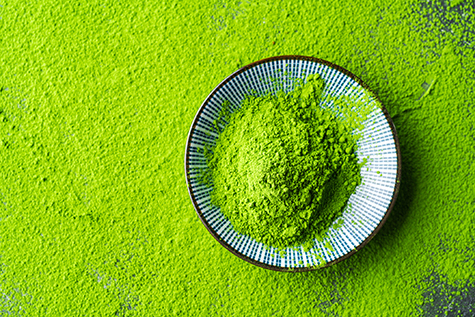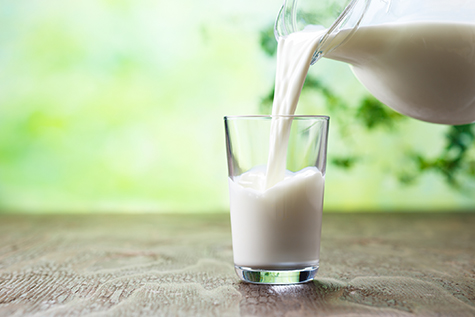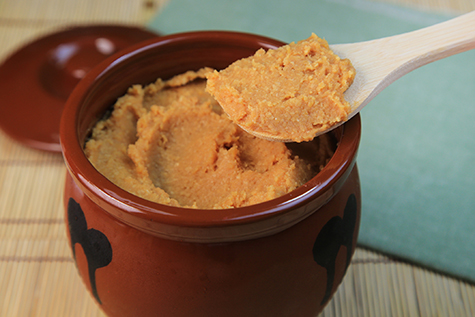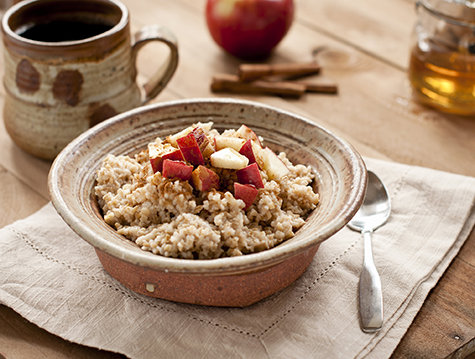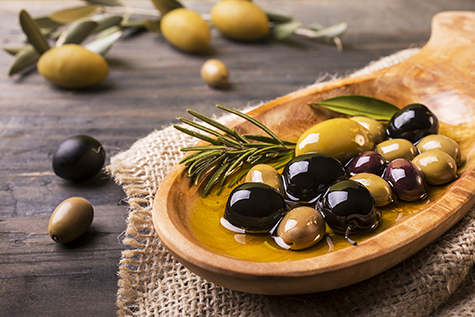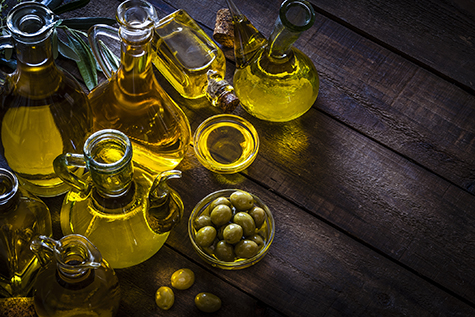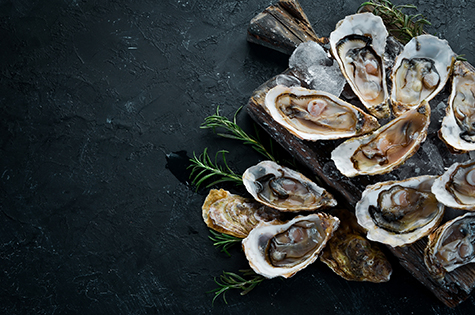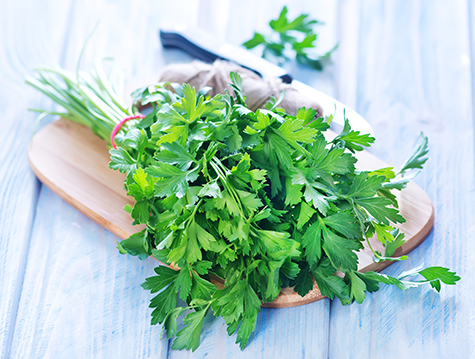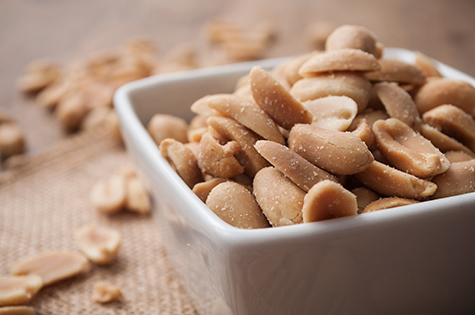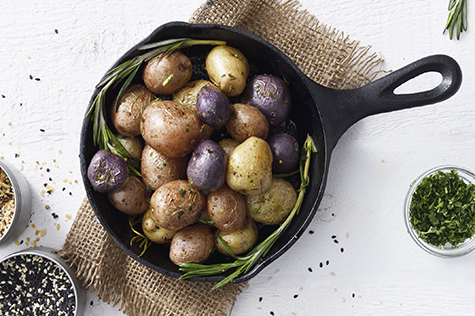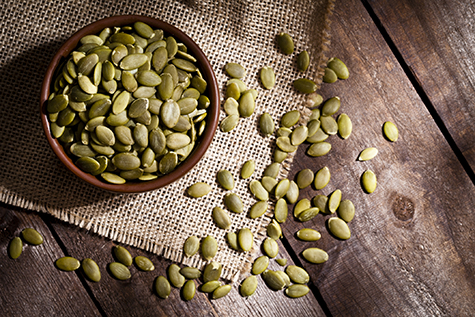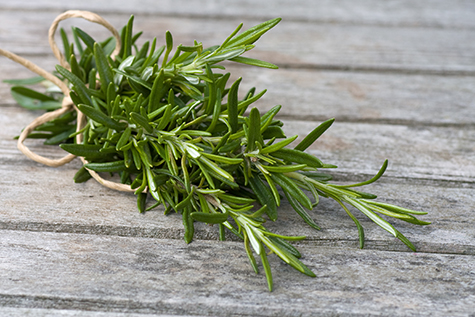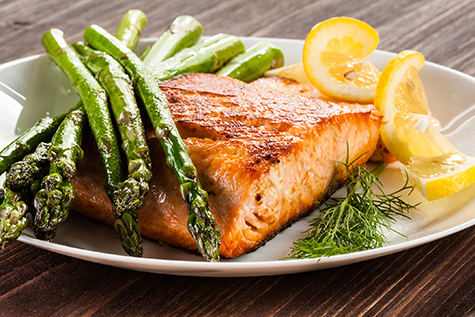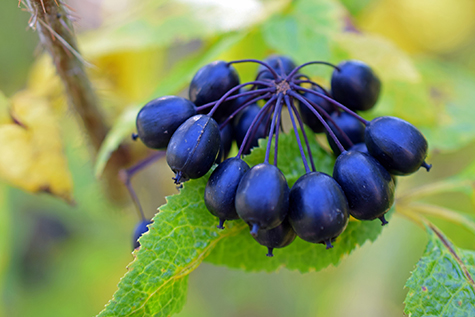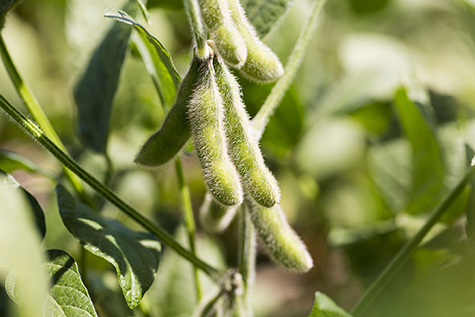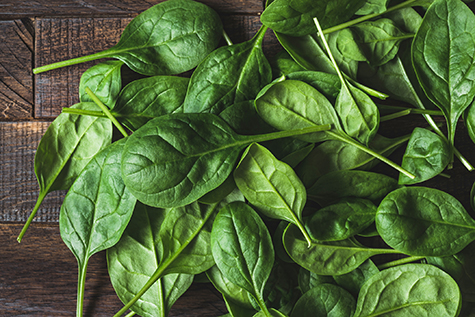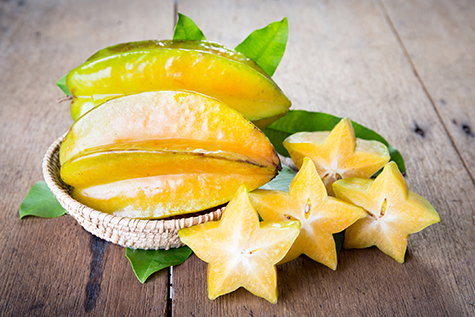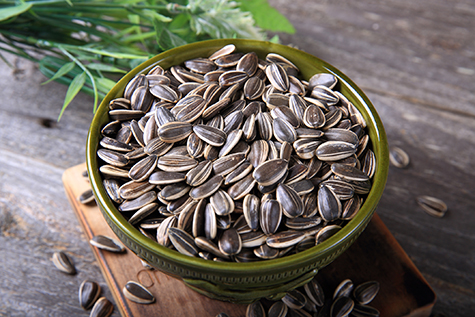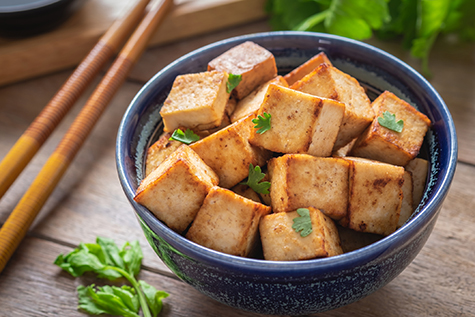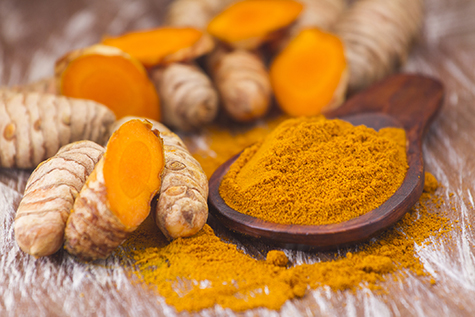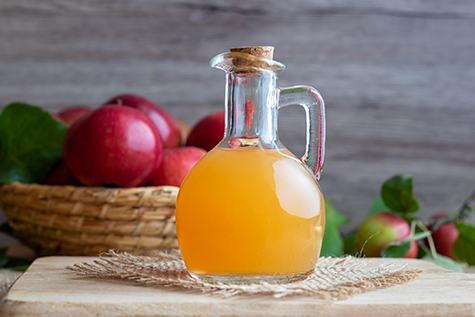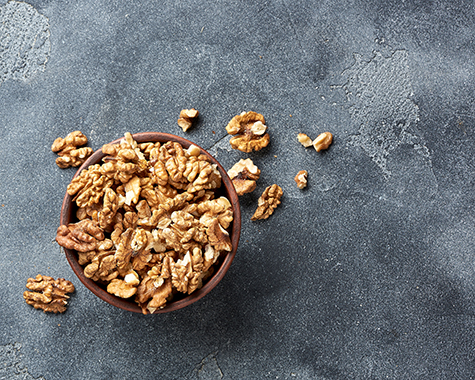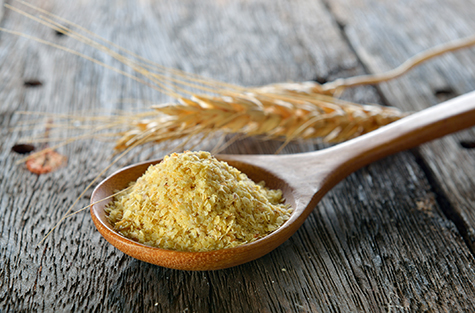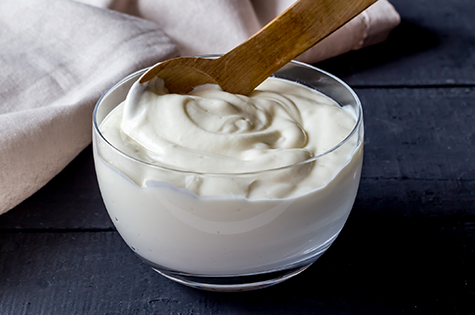Cheers to the Top 50 Foods for Happiness


Did you know that food can actually play a role in your mood and happiness levels? So many people live with restricting many foods or feelings of guilt or shame surrounding eating. Others may not get the nutrition they need to fuel the pleasure centers in the brain (think serotonin production), keeping mood stable. The brain uses a full 20% of the calories you take in so fueling it is absolutely critical. Foods that contain compounds like zinc, selenium, B6 and B12, magnesium, omega 3 fatty acids and antioxidants have proven links to brain health and even mood, which is why these foods top the list of 50 foods critical for your happiness and well-being.
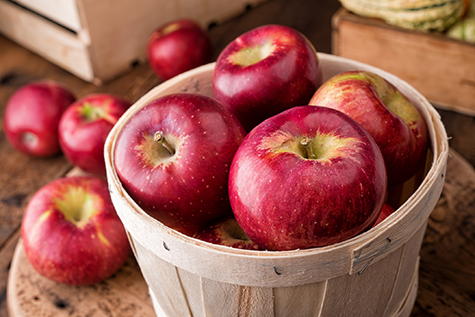
1. Apples
An apple a day can actually boost your mood in addition to the many other health benefits (think heart health, weight management, immune boosting, anti-cancer). Studies show that high intakes of fruits and veggies are likely associated with a reduced risk of depression. Plus, apples have lots of healthy fiber to fuel good gut bacteria. The gut is a primary producer of feel-good hormone serotonin.
2. Ashwagandha
More of an herb than an actual food, this is a very important ‘adaptogen’ for helping the body and mind cope with stress. Studies show that it can actually help reduce stress and anxiety as well as symptoms of depression. This adaptogenic herb has also been shown to lower cortisol levels – that’s the stress hormone. Enjoy it in tea!
3. Avocado
Research shows that a Mediterranean-style diet has the power to reduce depression and boost the mood. The reasons for this are multi-factorial but heart-healthy avocados, definitely on this dietary plan, could play a role as a healthy, anti-inflammatory fat also packed with mood boosting vitamin B6.
4. Bananas
As far as daily B6 needs are concerned, just one medium banana can get you over 1/4 of the way there. This is a critical nutrient in reducing anxiety in some people, calming the mind and supporting a positive, happy mood. Bananas are the ultimate grab and go snack to make your life a little bit easier, too.
5. Beans
Every single type of bean: chickpea, black, pinto, kidney and beyond, is packed with nutrients the brain needs for a stable mood. Beans specifically contain high levels of B6 and magnesium plus a high dose of fiber and protein to support gut health. Serotonin, the feel-good chemical, has roots in our gut that directly affect the brain.
6. Berries
All berries – blackberries, raspberries, strawberries, blueberries and beyond -contain antioxidants that help combat stress. Specifically, anthocyanins have been shown to boost brain function and support the mood. Better yet, they increase your blood sugar in a slow, steady way that gives your brain the energy it needs.
7. Brazil Nuts
A selenium power-house, Brazil nuts contain this powerful antioxidant in addition to brain-boosting healthy fats. Studies on this nutrient indicate that it plays a role in psychological variables in the brain, even affecting mood and lessening depression.
8. Breakfast Cereal
Yes, enriched breakfast cereal made this list! Not quite a whole, unprocessed food, it’s ok because the enrichment process of high fiber, low sugar cereals actually provide critical nutrients. High in iron, B vitamins including B6 and B12, selenium and zinc, having a bowl of breakfast cereal can boost your nutrient intake as well as your mood.
9. Brown Rice
Whole grain brown rice (and wild as well as black varieties) contain mood-boosting vitamins like B-6 and magnesium in addition to blood sugar boosting complex carbohydrates. Just ½ cup contains over 10% of our daily value of magnesium, which can play a role in depression when levels are low. This amount of brown rice also provides nearly 30% of daily selenium needs so this whole grain deserves a place in the diet.
10. Cashews
Cashew nuts are a perfect blood-sugar stabilizing snack – think a perfect combination of complex carbohydrates, fiber and protein. A 1-ounce serving also supplies 3 mcg of selenium, 83 mg of magnesium, and nearly 2 mg of zinc, all important mood-boosting minerals.
11. Chamomile
Research clearly shows that chamomile specifically reduces general anxiety disorder. When compared to a placebo in studies, there was a significantly greater reduction in anxiety score during chamomile therapy. A warm, comforting cup of tea has an added happiness bonus when it’s made from the herb chamomile.
12. Cottage Cheese
Dairy contains many minerals that the body needs for proper functioning and among them is mood-boosting selenium. Cottage cheese specifically contains about 20 mcg (30%) of your daily selenium needs in one cup. A study on selenium supplementation in human subjects done in New Zealand found that increased intake of this mineral improved chronic fatigue symptoms significantly in patients which has the power to really boost happiness levels.
13. Chia Seeds
The brain needs omega-3 fatty acids to survive and thrive. Chia seeds are a wonderful plant-based option which offer calming, anti-inflammatory properties to help soothe the body. Chia seeds also provide of protein to help with blood sugar (and mood) stabilization.
14. Cilantro
Commonly used as a garnish, feel free to use cilantro leaves very liberally on your dishes because it is a nutrient-dense herb that could even boost your mood. As you could guess from the dark green color and intense, herbal flavor, there are a lot of vitamins, minerals and antioxidants in cilantro including mood-boosting B6 and magnesium.
15. Cod
This simple white fish is popular in many international cuisines for good reason; it is nutritious and also has the potential to boost your mood and happiness. Cod is a good source of protein for blood sugar balancing and stabilization – important for any mood and to avoid ‘hanger’ – and it’s high in vitamin B12 as well, which is linked to depression in deficient people.
16. Dark Chocolate
The most important happiness connector in chocolate is the cocoa, so “dark” chocolate with a high concentration is key here. Chocolate contains compounds that help combat stress and anxiety, enhancing feelings of calm. Be sure to skip milk or white chocolate and aim for 70% or higher cocoa content to maximize antioxidant flavonols and magnesium.
17. Eggs
Beware vitamin D deficiency and mood! Egg yolks are one of the few food sources of this nutrient as vitamin D is hard to find in natural foods because we make it when sunshine hits our skin. In one study, low levels of vitamin D were associated with poor mood and depression, which is a good reason to get your levels tested today.
18. Flax
High fiber flax seeds have the potential to boost your mood by supporting the brain in many ways. The calming omega-3 fatty acids in flax offer critical EPA and DHA to the brain for optimal functioning and they also contain magnesium, 40 mg in fact, in 1 Tablespoon. These compounds have been proven to increase happiness hormones in the brain.
19. Injera
If you’ve ever had Ethiopian food, you’ve likely encountered their fermented bread, injera, made of teff. Making it requires a short period of fermentation which gives it a nice spongy texture and unique taste. Teff is a whole grain with fiber to feed your good gut bacteria and probiotics from the fermentation process that also fuel the gut in a positive way for that gut/brain connection that plays a role in your mood and happiness.
20. Kefir
Creamy, tangy kefir is a fermented yogurt beverage that again supports the gut with good bacteria. Because so much serotonin production takes place in the gut, there’s a lot of opportunity to maximize this process to support your brain health and happiness with a delicious, healthful beverage.
21. Kombucha
This fermented tea is served cold and now commonly found in your local grocery store. There have been studies on the gut and mental health connection with implications for depression and anxiety when it comes to using fermented foods. If you like a slightly vinegar, carbonated beverage, this tea is for you and could even boost your mood!
22. Matcha
Research tells us that matcha green tea can actually lower stress levels. The amino acid L-theanine in green tea may target relaxation and the reduction in stress, supporting the brain’s ability to clear excitatory hormones. This has proven true in both human and animal models!
23. Milk
Whether you choose plant-based or dairy milk, make sure that they’re fortified with vitamin D which studies have linked to mood outcomes. Deficiency of vitamin D has actually been linked to poorer moods and even depression in older adults. Dairy and soy milks are high in protein which has a nice blood sugar stabilizing effect to support a stable mood.
24. Miso
This fermented soybean paste has a wonderful salty, umami flavor and can be used for recipes beyond soup. In fact, miso is fermented which adds to its happiness-boosting potential as it offers good bacteria to your gut, a prime producer of serotonin. Use miso for glazing veggies and meat or add it to a sauce for a healthful and flavorful boost.
25. Oatmeal
Oats are a happiness powerhouse. Full of slow-burning, high fiber, complex carbs that help fuel the brain yet stabilize blood sugar for long-term energy, they are dense in nutrients as well. One cup of regular oatmeal contains 13 mcg of selenium, 6 grams of protein and 70 mg of magnesium for a nice dose of happy nutrients at breakfast.
26. Olives
Did you know that olives are a fermented food? Rich in the probiotic lactobacillus, there’s evidence that the good bacteria in olives can support our gut health and even possibly our happiness. An estimated 95% of our serotonin is produced in the GI tract so the gut-brain connection through this feel-good chemical is strong.
27. Olive Oil
Olives and olive oil need to be separated in this discussion about food and happiness because there is differing research on each of these products. While a benefit to olives is their fermentation, olive oil has been specifically linked in studies on diet, happiness and mood to show an increase in well-being. The Mediterranean diet has been studied with positive outcomes on mood.
28. Oysters
Not only are oysters rich in zinc, they also contain high levels of selenium; both minerals are linked to improvements in mood and well-being. Whether you enjoy oysters raw or cooked, experiment with including them in your diet on a regular basis for a boost of protein and healthy fats for blood sugar stabilization in addition to these critical minerals.
29. Parsley
Flat leaf or curly, use parsley as a delicious leafy green and ‘happiness’ garnish. It contains high levels of the important mineral magnesium and a small amount of zinc; both of which have been linked to a reduced risk of developing depression.
30. Peanuts
The simple peanut can be a happiness booster. Peanuts are good sources of the vitamin B6, which actually helps the brain make serotonin, a key mood regulator. Bonus: ¼ cup of peanuts provides 16% of your daily value of magnesium, another precursor to serotoinin.
31. Potatoes
Sometimes potatoes get a bad reputation for being ‘high in carbs’ but that’s overlooking the fact that they’re wonderfully nutrient dense and important brain energy. Importantly, potatoes are rich in B6, which has a direct link to serotonin levels in the brain.
32. Pumpkin Seeds
Pepitas, or pumpkin seeds, are great sources of magnesium, a mineral that acts as a relaxant to the nervous system, even reducing fear and irritability. They also contain 600 mg of the amino acid tryptophan, which converts to calming serotonin in the brain, supporting people with depression and anxiety. One other bonus is their blood sugar balancing components: healthy fat, protein and complex carbs.
33. Radishes
Spicy radishes are actually a member of the cruciferous vegetable family (like broccoli and kale), which has a wide variety of health-boosting benefits. Happiness may be one of them in fact because radishes are important providers of magnesium, zinc, and B6, which are all precursors for happiness hormones in the brain.
34. Rosemary
Cooking with and smelling rosemary have links to happiness and calm. A small study in the Journal of Translational Medicine found that consuming this herb reduces acute stress. This is a simple way to boost the mood simply by using your senses with food.
35. Salmon
Salmon has several nutrients that could benefit your happiness. This fatty fish contains protein for blood sugar balance, omega-3s to calm inflammation and provide the brain with plenty of healthy fats, B12 (the highest fish in this vitamin!) and magnesium, which is critical to a healthy, happy brain.
36. Siberian Ginseng
Sometimes called ‘eleuthero’, this herb has been used to combat pain, fatigue and sleep problems in human studies. One particular study on using Siberian ginseng to reduce chronic fatigue found significant improvements in those who took it for 1-2 months. Talk about increasing happiness by reducing fatigue – these participants greatly increased their quality of life. You can find ginseng in extract, capsule or powder form so be sure to check with your doctor before taking.
37. Soy Beans
So often misunderstood, soy is actually a happiness booster in addition to containing anti-cancer, bone building and heart healthy benefits. Notably soy beans are rich in magnesium, which plays a role in the development of happiness hormone, serotonin, in the brain. Enjoy soy beans in the form of edamame or as roasted beans for added crunch and an on-the-go snack.
38. Spinach
Studies clearly show that following a Mediterranean dietary pattern can influence happiness. This versatile green leafy veggie is part of that pattern and can boost y our happiness through its rich concentration of magnesium, a true supporter of serotonin production in the brain. Enjoy spinach blended into a smoothie, as a base to your next salad, in eggs, or in a sandwich or wrap.
39. Starfruit
Native to Sri Lanka, these tiny star-shaped fruits can be a bit hard to find. They are grown in Florida and Hawaii as well. If you can get one, it could help boost your happiness levels and not just because it’s fun to look at and eat. Specifically, starfruit contains magnesium for serotonin support and fiber to help balance blood sugar and create a stable mood.
40. Sunchoke
Also called Jerusalem artichoke, this delicious root vegetable is full of prebiotics. Prebiotics are a type of carbohydrate that our good gut bacteria absolutely love to thrive on, so eating prebiotics can make the gut happy, which boosts serotonin production, ultimately making our brains happy.
41. Sunflower Seeds
The perfect, balancing snack for blood sugar (and mood) stabilization, these small seeds contain magnesium as well as B-vitamins which can help reduce stress on the body and support neurological function. Try the kind with shells on so that you have to work a little to open and eat them as they’re dense in calories.
42. Tempeh
Tempeh is a unique soy food because it has the added benefit of being fermented. Much firmer and chewier than tofu, it is versatile to cook with (think tempeh tacos, tempeh sandwiches or tempeh ‘meat’ recipes). Serotonin, our ‘feel good’ hormone, actually is made in the gut as well as the grain so fueling the gut with healthy bacteria from fermented foods can help boost your mood.
43. Tofu
Soy in so many forms deserves a place on this list and tofu is no exception. Tofu is wonderfully high in magnesium, which plays a role in the development of happiness hormone, serotonin. Aside from that (and its amazing calcium content), it is a balanced food with complex carbohydrates, healthy fat and complete protein for ultimate blood sugar balance and stabilization – which can positively affect your mood, too.
44. Tulsi
Also called holy basil, you’ll most commonly find this happiness herb in teas. Tulsi tea is a well-known ‘adaptogen’ that helps your body actually adapt to stressors both physical and emotional. A cup of this herbal tea can create a soothing, calming experience in your day.
45. Turmeric
This bright orange/yellow root contains the powerful anti-inflammatory compound curcumin, which is often dosed in supplement form. Turmeric may aid the body in adapting to stress; studies support this. A small study of 30 human subjects, participants who took a curcumin supplement saw a significant reduction in anxiety score than those who had a placebo. No need to supplement because you can use turmeric root in tea, grated into smoothies, soups, sauces or dressings to a little lift to your day.
46. Vinegar
So often forgotten as a fermented food, vinegar should be included in a healthy diet that supports serotonin production in the gut – that has a link to happiness and well-being in the brain. There are strains of probiotics in balsamic and apple cider vinegars that add good bacteria to the bacteria we already have living in our intestines.
47. Walnuts
A perfect blood sugar (and mood stabilizing) snack with balanced complex carbs, heart healthy fats and protein, walnuts can make you happier. Specifically, walnuts have omega-3 fatty acids in the form of alpha-linolenic acid, which have been linked to decreasing inflammatory markers, calming the body and mind. Bonus: walnuts contain happiness-boosting selenium, zinc and B-vitamins.
48. Water
Studies have shown that even mild dehydration can negatively affect mood and happiness! In one small study on young women in their early 20s, dehydration actually created mood disturbances including trouble with concentration and headaches. Avoid a dip in your happiness just because you’re not drinking enough water by staying hydrated.
49. Wheat Germ
A high fiber complex carbohydrate that provides critical energy for the brain and boosts happiness hormones, wheat germ is a wonderful happiness-producing food. It contains critical nutrients that act as precursors to happiness hormones in the brain including zinc and magnesium. Add it to your oatmeal, cereal or yogurt or as a replacement for breadcrumbs in recipes.
50. Yogurt
There are many fermented foods on this list because of the gut-brain connection and studies related to happiness and serotonin but yogurt has other benefits aside from fermentation. Rich in happiness nutrients B12 and magnesium, it’s a balanced and delicious food to boost your mood.
Resources
Amsterdam JD, Li Y, Soeller I, Rockwell K, Mao JJ, Shults J. A randomized, double-blind, placebo-controlled trial of oral Matricaria recutita (chamomile) extract therapy of generalized anxiety disorder. Journal of clinical psychopharmacology. 2009;29(4):378.
Armstrong LE, Ganio MS, Casa DJ, Lee EC, McDermott BP, Klau JF, Jimenez L, Le Bellego L, Chevillotte E, Lieberman HR. Mild dehydration affects mood in healthy young women. The Journal of nutrition. 2011 Dec 21;142(2):382-8.
Benton D. Selenium intake, mood and other aspects of psychological functioning. Nutritional neuroscience. 2002 Jan 1;5(6):363-74.
Coppen A, Bolander-Gouaille C. Treatment of depression: time to consider folic acid and vitamin B12. Journal of Psychopharmacology. 2005;19(1):59-65.
Esmaily H, Sahebkar A, Iranshahi M, Ganjali S, Mohammadi A, Ferns G, Ghayour-Mobarhan M. An investigation of the effects of curcumin on anxiety and depression in obese individuals: a randomized controlled trial. Chinese journal of integrative medicine. 2015;21(5):332-8.
Khan N, Mukhtar H. Tea and health: studies in humans. Current pharmaceutical design. 2013;19(34):6141-7.
Kiecolt-Glaser JK, Belury MA, Andridge R, Malarkey WB, Glaser R. Omega-3 supplementation lowers inflammation and anxiety in medical students: a randomized controlled trial. Brain, behavior, and immunity. 2011;25(8):1725-34.
NIH. B6. https://ods.od.nih.gov/factsheets/VitaminB6-HealthProfessional/. Accessed 9/27/19.
NIH. Magnesium. https://ods.od.nih.gov/factsheets/Magnesium-HealthProfessional/. Accessed 9/26/19.
SHARMA DS. Health Benefits of Spices (Review). International Journal of Scientific Research. 2016;4(9).
Unno K, Furushima D, Hamamoto S, Iguchi K, Yamada H, Morita A, Horie H, Nakamura Y. Stress-reducing function of matcha green tea in animal experiments and clinical trials. Nutrients. 2018 Oct 10;10(10):1468.
Wilkins CH, Sheline YI, Roe CM, Birge SJ, Morris JC. Vitamin D deficiency is associated with low mood and worse cognitive performance in older adults. The American Journal of Geriatric Psychiatry. 2006 Dec 1;14(12):1032-40.
Worlds Healthiest Foods. Parsley. http://www.whfoods.com/genpage.php?dbid=100&tname=foodspice. Accessed 9/27/19
